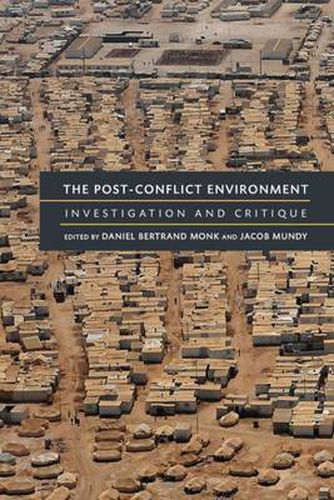Readings Newsletter
Become a Readings Member to make your shopping experience even easier.
Sign in or sign up for free!
You’re not far away from qualifying for FREE standard shipping within Australia
You’ve qualified for FREE standard shipping within Australia
The cart is loading…






In case studies focusing on contemporary crises spanning Africa, the Middle East, and Eastern Europe, the scholars in this volume examine the dominant prescriptive practices of late neoliberal post-conflict interventions - such as statebuilding, peacebuilding, transitional justice, refugee management, reconstruction, and redevelopment - and contend that the post-conflict environment is in fact created and sustained by this international technocratic paradigm of peacebuilding. Key international stakeholders - from activists to politicians, humanitarian agencies to financial institutions - characterize disparate sites as weak,
fragile, or failed states and, as a result, prescribe peacebuilding techniques that paradoxically disable effective management of post-conflict spaces while perpetuating neoliberal political and economic conditions. Treating all efforts to represent post-conflict environments as problematic, the goal becomes understanding the underlying connection between post-conflict conditions and the actions and interventions of peacebuilding technocracies.
$9.00 standard shipping within Australia
FREE standard shipping within Australia for orders over $100.00
Express & International shipping calculated at checkout
In case studies focusing on contemporary crises spanning Africa, the Middle East, and Eastern Europe, the scholars in this volume examine the dominant prescriptive practices of late neoliberal post-conflict interventions - such as statebuilding, peacebuilding, transitional justice, refugee management, reconstruction, and redevelopment - and contend that the post-conflict environment is in fact created and sustained by this international technocratic paradigm of peacebuilding. Key international stakeholders - from activists to politicians, humanitarian agencies to financial institutions - characterize disparate sites as weak,
fragile, or failed states and, as a result, prescribe peacebuilding techniques that paradoxically disable effective management of post-conflict spaces while perpetuating neoliberal political and economic conditions. Treating all efforts to represent post-conflict environments as problematic, the goal becomes understanding the underlying connection between post-conflict conditions and the actions and interventions of peacebuilding technocracies.